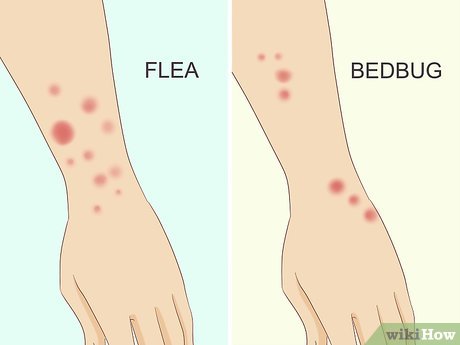
Finding Relief: How to Treat and Prevent Bed Bug Bites on Your Legs
Bed bug infestations have become a widespread issue in recent years, causing distress and discomfort for many homeowners. While these pesky insects are known to bite all over the body, bed bug bites on the legs are particularly common due to their proximity to the mattress. In this article, we will discuss effective methods to treat and prevent bed bug bites on your legs, providing you with much-needed relief and a good night’s sleep.
Understanding Bed Bug Bites:
Bed bugs are small, wingless insects that feed on human blood during the night, leaving behind itchy and irritating bites. They are attracted to body heat and carbon dioxide, both of which are readily emitted by humans during sleep. As a result, the legs, being uncovered during the night, are more likely to be bitten.
Treatments for Bed Bug Bites on Legs:
1. Cleanse the Affected Area:
As soon as you notice bed bug bites on your legs, it is essential to cleanse the area with mild soap and water. This helps prevent infection and alleviates itching. Pat dry with a clean towel, avoiding excessive rubbing to prevent further irritation.
2. Apply Topical Treatments:
To reduce inflammation and itchiness, apply over-the-counter hydrocortisone cream or calamine lotion to the bites on your legs. These products contain anti-inflammatory ingredients that soothe the affected skin and provide temporary relief. Using a cold compress may also help reduce swelling and itching. Remember to follow the instructions on the product for proper application and dosage.
3. Take Oral Antihistamines:
If the itchiness persists, consider taking oral antihistamines, such as Benadryl or Claritin, as directed by a healthcare professional. Antihistamines help relieve allergy symptoms and reduce itching caused by bed bug bites on your legs. It is advisable to consult a doctor or pharmacist to ensure appropriate usage and dosage.
Preventing Bed Bug Bites on Legs:
1. Inspect and Clean Your Bedroom:
Regularly inspect your mattress, bedding, and furniture for any signs of bed bugs. Look for small, reddish-brown insects as well as dark spots (fecal stains) or tiny rust-colored spots (blood stains) on your sheets. Vacuum your mattress, bed frame, and surrounding areas frequently to eliminate any potential hiding spots for bed bugs.
2. Encase Your Mattress and Pillows:
Invest in bed bug-proof mattress encasements and pillow protectors. These encasements are designed to completely cover your mattress and pillows, preventing bed bugs from entering or escaping. They act as a barrier, making it harder for bed bugs to feed on your legs. Make sure to choose encasements specifically designed to prevent bed bugs; standard dust mite protectors might not be effective.
3. Minimize Clutter and Maintain Hygiene:
Bed bugs thrive in cluttered areas, so keep your bedroom tidy, reducing potential hiding spots for these pests. Regularly wash your bedding, curtains, and clothing in hot water to eliminate any potential bed bugs or eggs. It is also a good idea to dry your laundry on high heat as this effectively kills bed bugs at all stages of their lifecycle.
4. Avoid Bringing Bed Bugs Home:
To prevent bringing bed bugs home from your travels, check hotel rooms thoroughly for any signs of infestation. Inspect the mattress, headboard, and furniture, and keep your luggage on a luggage rack instead of placing it directly on the floor or bed. When you return home, wash all clothing in hot water and vacuum your suitcase before storing it.
Professional Extermination:
If all preventive measures fail, and you continue experiencing bed bug bites on your legs, it might be time to seek professional help. Pest control professionals can identify and eliminate bed bug infestations using a combination of chemical treatments, steaming, and thorough cleaning. Consult with reputable pest management companies to discuss your options.
In conclusion, bed bug bites on your legs can be a nuisance, disrupting your sleep and causing itching and discomfort. By following the treatment methods outlined above, you can find relief and alleviate the symptoms. Additionally, implementing preventive measures ensures that you can protect yourself from future infestations, keeping your legs free from bed bug bites and allowing you to enjoy a peaceful night’s sleep.

















